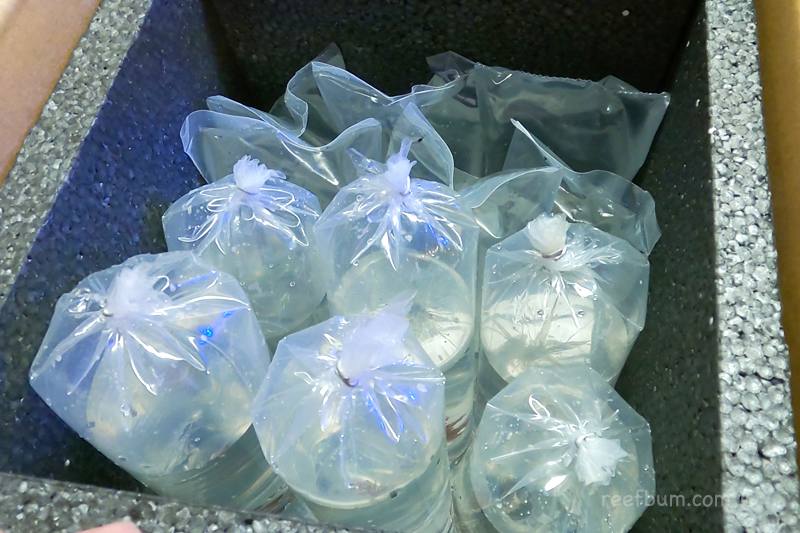
Over the years I have shipped a lot of coral frags overnight to customers using either FedEx or UPS. Initially, I used FedEx but I switched to UPS after FedEx screwed up and delivered some packages a day late. Frags are much more prone to die when in transit for two days versus a day.
UPS had been super reliable for me up until the pandemic hit. There were a few instances during the past year when packages didn’t make it the next day and, as a result, some corals didn’t survive. Was this due to labor shortages in the overnight shipping business? Could more extreme weather be part of the problem?
Plan to Overcome Shipping Issues
My solution was to do everything possible to increase the survival rates of my corals if there were any delays. I polled a few coral farming colleagues to see what their best practices are for shipping corals.
Some believe that oxygen can help keep corals alive longer while in transit. It makes sense since corals are animals and require oxygen. Others feel a few pieces of activated carbon in the bag will help reduce mortality rates. The theory here is that activated carbon will help absorb any toxins that may develop due to dying bacteria during shipping delays.
Armed with this information, I decided to do an experiment to see if I should change my shipping methods.
I put three different SPS frags in bags with only tank water (no air). The bags were then sealed up with a plastic bag heat sealer, the method I had been using to this point. Next, I bagged up the same types of frags in bags with tank water and oxygen. I bagged up another set of the same frags using tank water, oxygen and activated carbon.
I put all the bags in the same insulated box and sealed it up with tape. I left the box near my furnace since that location is relatively warm (around 70 degrees Fahrenheit). Temperature is certainly a big factor when shipping corals but for this experiment I wanted to test oxygen and activated carbon as the variables.










0 Comments